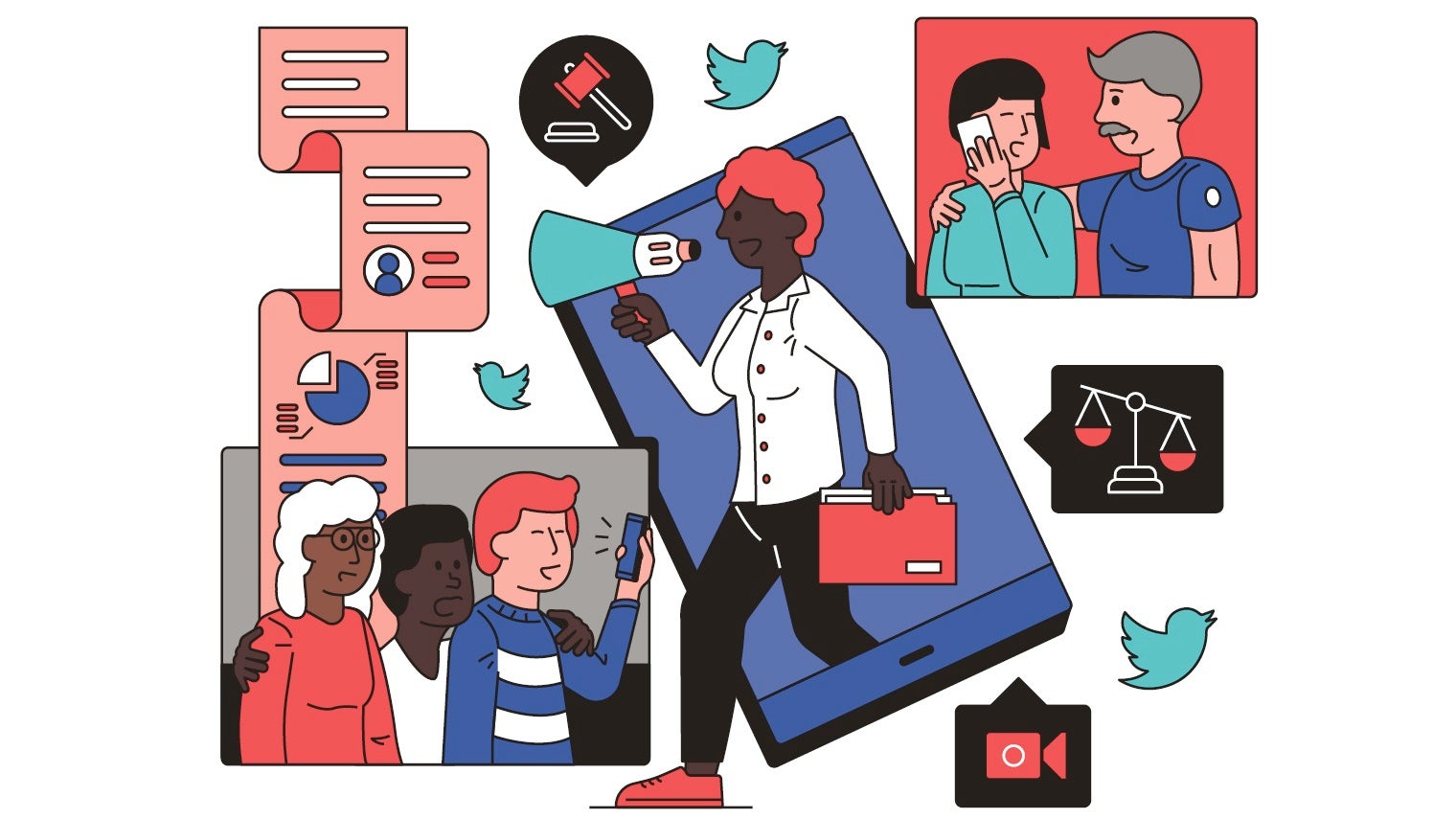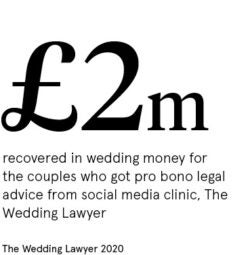
It was around the time of the Brexit vote in 2016 that we first saw a small group of lawyers grab the UK’s consciousness on social media. But in the five years since, the profile of #legaltwitter has risen exponentially, their number has grown and the simple legal analysis they offer has never been more in demand.
Twitter has proved particularly fertile ground for social media and the law. It has given the legal sector a platform outside the courtroom, from crowdfunding legal actions to driving awareness of petitions against injustices or sentencing.
Many have followings in the tens or hundreds of thousands, often rivalling some celebrities, their popularity fuelled by an ability to deliver a damning explanation in a short tweet or thread as effectively as a lengthy closing argument.
Law touches every aspect of our lives and it shouldn’t just be accessible to people who can afford to pay for advice
Most recently this has been instrumental in explaining the new government coronavirus regulations, propelling human rights barrister Adam Wagner, of Doughty Street Chambers, into the wider Twitter limelight. His easy-to-understand threads about the ever-changing COVID tier systems have been the go-to for media and the general public alike.
He says: “I certainly had no idea I would be explaining complex criminal laws about basic social activities or that understanding law would become part of people’s everyday lives, as it has during the pandemic, because of lockdown rules. I have been surprised at how enthusiastic people have been about my work, breaking things down without any agenda except making the law clearer.”
Wagner says he was seen as an “outlier and oddity” when he joined Twitter a decade ago, after another now sought-after legal analysis commentator, lawyer David Allen Green, suggested it. It has allowed Wagner to democratise his knowledge, particularly on human rights law, alongside YouTube explainer videos, and in addition he posts his Better Human podcast.
“It is hugely useful as a way for the legal community to reach outside the dusty halls of Temple to the wider public. Law touches every aspect of our lives and it shouldn’t just be accessible to people who can afford to pay for advice,” he says.
Social media platforms tackling diversity and underrepresentation
Another to use social media and the law for good is Alexandra Wilson of 5SAH. As @EssexBarrister on Twitter, she has chronicled her journey to becoming a barrister, speaking frankly about the racism and prejudice she has had to overcome. It led her to write a memoir, In Black and White: A Young Barrister’s Story of Race and Class in a Broken Justice System.
She says: “Social media has been so important for me in my journey. It has enabled me to share my personal experiences with so many people in a way that I could never have previously imagined. I want to change perceptions about what the legal profession is like and also what it should be.

“A viral tweet describing that I’m ‘what a barrister looks like’, despite not being what people typically think of as a barrister, led me to write a book about race and class in the profession, actively campaign for more diversity and regularly mentor aspiring barristers from ‘non-traditional’ backgrounds.
“The great thing about social media is it’s so easy to use, particularly for young people. I want the message that the legal profession needs to be diverse to reach as many young people as possible and social media really helps those of us who are underrepresented to be more visible.
“I also think the legal content on social media is great. People share their articles, blogs and videos, which helps educate the public and demystify the law. It has helped to modernise the profession and make the law more accessible for everyone.”
Legal argument and legal issues are driving social conversation
Other examples of Twitter accounts aiming to deliver accessibility and legal analysis through social media and the law include The Good Law Project, founded by Jolyon Maugham QC. Its Twitter bio states, “We use the law for a better society.”
And with more than 400,000 followers, rising from 88,000 just two years ago, The Secret Barrister is one of the first legal analysis accounts so many people now turn to. The mysterious figure, who uses it to educate on the state of the criminal legal justice system and the importance of legal aid, has since become a number-one bestselling and award-winning author with a second book Fake Law.
The benefits of social media and the law are being felt more widely, harnessed by those in niche legal specialisms, to provide legal analysis and help or to deliver pro bono support.
For example, solicitor Pranav Bhanot founded TheWeddingLawyer.co.uk on Facebook and Instagram to run weekly legal clinics with free guidance for couples whose nuptials were impacted by the pandemic. For the vast majority of cases, this pro bono work was enough to recover refunds, which Bhanot approximates as being worth around £2 million.
He says: “The Instagram Lives and Facebook Lives we do help couples and suppliers to navigate the COVID-19 restrictions. This has increased access to justice, as the vast majority of couples would not have been able to pay for legal advice to assist them during these times. Social media can be a great way to apply pressure for change.”

It was around the time of the Brexit vote in 2016 that we first saw a small group of lawyers grab the UK's consciousness on social media. But in the five years since, the profile of #legaltwitter has risen exponentially, their number has grown and the simple legal analysis they offer has never been more in demand.
Twitter has proved particularly fertile ground for social media and the law. It has given the legal sector a platform outside the courtroom, from crowdfunding legal actions to driving awareness of petitions against injustices or sentencing.
Many have followings in the tens or hundreds of thousands, often rivalling some celebrities, their popularity fuelled by an ability to deliver a damning explanation in a short tweet or thread as effectively as a lengthy closing argument.
